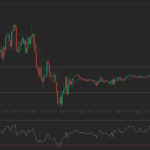WTI and Brent futures were lower during midday trade in Europe today, ahead of readings on US oil inventories. Fresh fighting was reported in Libya, as the government suggested foreign peacekeepers be brought in. Meanwhile, natural gas futures reversed earlier losses to stand neutral, after reaching a six-month low on Monday.
West Texas Intermediate futures for settlement in August traded for $99.75 per barrel at 13:42 GMT on the New York Mercantile Exchange, down 1.15%. Prices ranged from $101.06 to $99.60 per barrel. The US contract added 0.08% on Monday, after having lost about 3% last week.
Meanwhile on the ICE in London, Brent futures due in September stood for a 1.22% drop at $106.40 per barrel. Daily high and low stood at $107.69 and $106.20 per barrel, respectively. Brent’s premium to September WTI stood at $6.91, after last session’s closing margin of $7.23. The European contract gained 0.42% yesterday, and also dropped about 3% last week.
The private American Petroleum Institute (API) will post its weekly US oil inventories readings later today, ahead of the official Energy Information Administration (EIA) report due tomorrow. A Bloomberg survey suggested crude stocks lost 2.5 million barrels, while distillates added some 2 million barrels.
Last week’s official log revealed a 2.370 million-barrel draw for commercial crude oil inventories, gasoline inventories added 0.579 million barrels, while distillate fuels stockpiles levels increased by 0.227 million barrels.
Libya
Renewed fighting was reported at Tripoli airport last night, as rival armed groups committed rockets and other heavy weaponry to the battle.
The clashes at the airport erupted last week, leaving at least 7 people dead and some 30 injured, the BBC reported.
The Libyan government even proposed foreign peacekeepers be brought in to help stabilize the country.
“The government has studied the possibility to bring international forces to enhance security”, government spokesman Ahmed Lamine said at a press conference.
Various gangs and armed groups still control swathes of Libyan territory.
However, the country’s output was at 470 000 barrels per day, a spokesman for the state-run National Oil Corp (NOC) said on Sunday, after averaging 300 000 for the month of June, Reuters reported. Libya holds Africa’s largest crude reserves and has a potential output of some 4 million barrels per day.
Natural gas
Front month natural gas futures, due in August, were down 0.07% at the New York Mercantile Exchange to trade for $4.144 per million British thermal units at 13:44 GMT today. Prices ranged from $4.112 to $4.158 per mBtu. The contract added 0.02% on Monday, though it reached a six-month low of $4.092 per mBtu, after having dropped 6% last week, pressured by cool US weather.
The Marcellus shale deposit in the US Northeast is logging record output, Bloomberg reported. Gross output from the region will average 15.235 billion cubic feet a day this month, up 28 percent from a year earlier, the EIA said in a report yesterday.
“This is the latest round of big numbers from the Marcellus,” Martin King, an analyst with FirstEnergy Capital Corp. in Calgary, said for Bloomberg yesterday. “There’s too much supply in the region and there’s not enough takeaway capacity. That regional sentiment is probably weighing on Nymex prices to some degree,” he added.
NatGasWeather.com suggested an injection of 95-100 Bcf will be reported in this week’s log, about 25 Bcf more than the 5-year average gain for the reported week. However, next week’s build up is suggested to be some 45-50 Bcf above the average, which would be the biggest gain this summer season.





